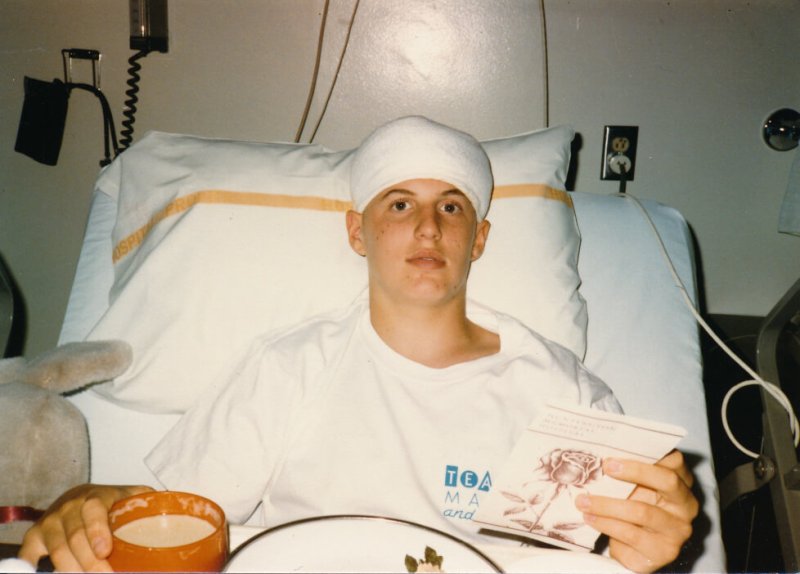Ten days [after my brain cancer surgery as a teenager,] they had removed the staples from the left side of my head. I felt stronger, more confident. I was eager to go home.
My neurosurgeon showed up that afternoon, with my parents and brother assembled in my hospital room. She spared us small talk. “The tumor cells were cancerous.” I asked her to be specific, to tell me my chances.
That’s when she said the tumor was an anaplastic astrocytoma, and that the survival rate for this cell type and grade was low.
…
[Years later,] I read [my medical history to neuropathologist Karl Schwarz]. When I finished, he let out a long sigh. “This is the completely false diagnosis. It did not take place at your local hospital. Someone wanted a second opinion from a respected institution. The findings were sent to such a person. But in any case, he was wrong.”
No words came out of me.
Schwarz is strongly of the opinion that the cancer diagnosis was wrong. I believe him. The best evidence in support of his argument is the fact that I’m alive. People with anaplastic astrocytomas do not survive long — certainly not 35 years. I’m no medical miracle. In a sense, I’m more like a mistake.
“Cancer has never been part of your story,” Schwarz told me.
But that’s where he’s wrong. Cancer has been central to my story. While I’m sure Schwarz meant to console me, his words have instead opened the floodgates to deep and painful emotions: fierce feelings of rage followed by floods of grief.
I wrote out a list of the consequences of the misdiagnosis. Brain radiation damaged my vision, my hearing and my hormones, and its long-term effect on the scar tissue in my brain is possibly why I’m epileptic. Chemotherapy harmed my lung function.































